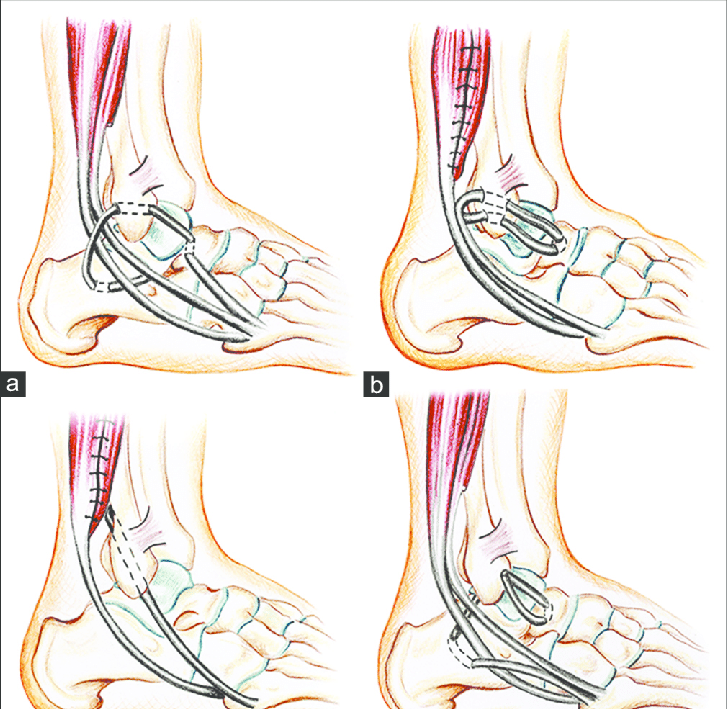Knee replacement surgery in Mumbai , also known as knee arthroplasty, is a surgical procedure that involves replacing the damaged or diseased knee joint with an artificial joint or prosthesis. The surgery is typically performed to relieve severe pain and disability caused by arthritis or other knee-related conditions.
At Orthoking, we have a team of highly skilled and experienced knee replacement specialists in Mumbai who can help patients achieve relief from their knee pain through this procedure. Our knee replacement surgeon in Mumbai has performed numerous successful knee replacement surgeries, helping patients regain their mobility and improve their quality of life.
There are different types of knee replacement surgery, depending on the extent of damage to the knee joint and the patient’s medical history. The most common types of knee replacement surgery are
Total knee replacement surgery involves replacing the entire knee joint, including the femur (thigh bone), tibia (shin bone), and patella (kneecap), with an artificial joint made of metal, plastic, or ceramic. The surgery is typically performed under general anesthesia and takes about two hours to complete.
Partial knee replacement surgery, also known as unicompartmental knee replacement, involves replacing only the damaged part of the knee joint with an artificial joint. This surgery is less invasive than total knee replacement and is typically performed on patients who have arthritis or damage in only one compartment of the knee joint.
Revision knee replacement surgery is performed when a previously implanted artificial knee joint fails or wears out. This surgery involves removing the old prosthesis and replacing it with a new one.
Knee replacement surgery can provide many benefits for patients suffering from knee-related conditions. Some of the benefits of knee replacement surgery are
One of the primary benefits of knee replacement surgery is pain relief. Patients often experience severe pain and discomfort in the knee joint due to arthritis or other knee-related conditions, which can significantly affect their quality of life. Knee replacement surgery can help relieve pain and restore mobility, allowing patients to resume their daily activities.
Knee replacement surgery can also improve mobility in patients suffering from knee-related conditions. After the surgery, patients can expect to have increased range of motion in the knee joint, which can allow them to perform activities they were unable to do before.
Knee surgery can significantly improve the quality of life for patients suffering from knee-related conditions. Patients often report a better quality of life after the surgery, as they are able to resume their daily activities and enjoy hobbies that were previously impossible due to their knee condition.
Cobalt-chromium is a popular material for knee implants due to its strength, durability, and resistance to wear and tear. It is an alloy of cobalt and chromium, which makes it biocompatible and suitable for use in the human body. Cobalt-chromium knee implants are also less likely to cause an allergic reaction compared to other metals.
Titanium is a lightweight metal that is also strong and biocompatible. It is commonly used in knee implants due to its resistance to corrosion and wear. Titanium implants are also known to promote bone growth, which can help to improve the long-term success of knee replacement surgery
Stainless steel is a common material used in knee implants due to its strength and affordability. However, stainless steel implants can be more prone to wear and corrosion over time, which may require replacement surgery in the future.
Zirconium is a newer material used in knee implants, which has shown promising results in terms of wear resistance and biocompatibility. Zirconium knee implants are also known to reduce the risk of metal ion release, which can cause adverse reactions in some patients.
Ceramic knee implants are made of a high-strength ceramic material that is biocompatible and resistant to wear. Ceramic implants are also known to have low friction, which can help to reduce wear on the implant over time.

Knee replacement surgery is typically recommended for patients who have severe knee damage or arthritis that cannot be managed with non-surgical treatments, such as medication, physical therapy, or lifestyle changes. Common reasons for knee replacement surgery include:
It is important to note that knee replacement surgery is not recommended for everyone. Our knee replacement specialists in Thane will evaluate each patient’s medical history, symptoms, and imaging studies to determine if knee replacement surgery is the best treatment option for them.
There are several different types of metal knee implants available in the market for knee replacement surgery, each with its own unique benefits and drawbacks. Patients should discuss the various options with their surgeon to determine which type of implant is best suited to their individual needs and medical history.

The knee replacement surgery is typically performed under general or regional anesthesia and takes about 1-2 hours to complete. Our knee replacement surgeon in Thane will make an incision in the front of the knee and remove the damaged or diseased parts of the knee joint, such as the cartilage, bone, and ligaments.
The Orthopedic Surgeon will then prepare the remaining bone surfaces to receive the artificial components, which are typically made of metal, plastic, or ceramic materials. These components are attached to the bone using bone cement or press-fit techniques.
Once the components are in place, the surgeon will test the range of motion and stability of the knee joint to ensure proper alignment and function. The incision is then closed, and the patient is taken to the recovery room for observation and pain management.
Before the surgery, the patient will undergo several tests, including blood tests, imaging tests, and a physical examination. The surgeon will also discuss the patient’s medical history and any medications they are taking to ensure that the surgery is safe.
During the surgery, the patient will be under general anesthesia and will not feel any pain. The surgeon will make an incision in the knee and remove the damaged or diseased part of the joint. The artificial joint will then be implanted and secured into place. The incision will be closed with stitches or staples, and a bandage will be placed over the knee.



After the surgery, the patient will be closely monitored in the recovery room to ensure that they are stable and comfortable. The patient may experience some pain and discomfort, which can be managed with pain medication.
Physical therapy will be an essential part of the recovery process. The patient will be required to participate in a physical therapy program to help restore mobility and strength to the knee joint. The physical therapy program may
Patients with severe knee pain, stiffness, and limited mobility due to arthritis, injury, or other knee-related conditions are often candidates for knee replacement surgery. The decision to undergo surgery is typically made after non-surgical treatments, such as medication, physical therapy, and lifestyle modifications, have been unsuccessful.
The recovery time for knee replacement surgery varies depending on the patient’s overall health and the extent of the surgery. Most patients are able to return to their normal activities within six to twelve weeks after surgery.
As with any surgery, there are risks associated with knee replacement surgery. These risks may include infection, blood clots, nerve damage, and joint stiffness. However, the risk of complications is generally low, and the benefits of surgery often outweigh the risks.
The lifespan of knee replacements varies depending on several factors, including the patient’s age, activity level, and overall health. On average, knee replacements can last for 10 to 15 years, although some may last longer.
Yes, patients are typically able to walk with the aid of crutches or a walker immediately after surgery. The surgeon and physical therapist will work with the patient to gradually increase weight-bearing activity and walking distance as the knee heals.
Foreign patients need to provide a valid passport, visa, medical history, and referral letter from their doctor. It’s also important to carry a copy of all medical reports and prescriptions.
Yes, physical therapy is an essential part of the recovery process after knee replacement surgery. The physical therapist will work with the patient to develop a personalised exercise program to help restore mobility and strength to the knee joint.
Most patients are able to resume their normal activities after knee replacement surgery. However, it is important to discuss activity limitations and recommendations with the surgeon and physical therapist during the recovery period to ensure a safe and successful outcome.
Patients can prepare for knee replacement surgery by following the surgeon’s pre-operative instructions, which may include stopping certain medications, adjusting diet and exercise routines, and arranging for transportation and post-operative care.
The decision to undergo knee replacement surgery should be made in consultation with a qualified orthopedic surgeon. The surgeon will evaluate the patient’s medical history, current condition, and treatment goals to determine if knee replacement surgery is the best option for their individual needs.



At The Orthopedic Clinic, we pride ourselves on providing the best care possible to our patients. We believe in treating the individual patient, not just their injury. Since our beginning in the Daytona Beach community in 1961, our goal has been to help our patients live their life in full motion through trusted, respectful, and cutting-edge orthopedic care. We have specialist Orthopedic Surgeon in Mumbai.











Dr. Bakul Arora is a Consultant Joint Replacement & Orthopaedic Surgeon is one of the leading Knee Replacement Surgeon in Thane and Mumbai with over 4000+ successfully surgeries. Dr. Bakul Arora specialises in Mini-invasive techniques which offer multiple benefits to patients. He does the surgery using Subvastus approach for Knee Replacement surgery and Direct Anterior Approach for Hip replacement Surgery . This new techniques has many advantages for patients like its pain-less , stich-less surgery, patients walks on the same day after surgery, no blood loss, faster recovery etc.


Knee replacement is required for advanced arthritis of the knee joint, producing painful limitation of movements and restriction in activities of daily living. Knee replacement as a solution should be offered when all non–surgical methods of treatment failed and painkiller medicines and injections also failed to reduce the Knee and hip pains.
Knee replacement can be total or unicondylar, depending on the number of compartments involved. Among the total knee replacement, there are two popular designs- Cruciate Retaining, and Posterior Stabilized. The decision for the design is best taken by the operating orthopedic surgeon based on the integrity of ligaments. Patella resurfacing as a routine is a debatable subject.
Yes, most knee replacement surgeries are minimally invasive, with numerous benefits to the patient, including smaller incisions, less tissue trauma, bleeding and post–operative pain, shorter hospital stays, faster recovery, and earlier return to work and activities — in weeks rather than months. Advantages of Minimally Invasive Knee Replacement Surgery. Patients Start walking in few hours of surgery. Patients start climbing the staircase from second day of his surgery. Patients Discharge with in 3 Days from the Hospital after surgery. No blood loss during the surgery, no blood Transfusion required. Less Physiotherapy.( No Physiotherapist required for home) Less Antibiotic. Stitchless Surgery. Recovery time is just two – three week.
Bilateral knee replacement in the same sitting, can be performed if both the knee joints are damaged to the same extent, however, the medical condition of the patient, and bone quality must be kept in consideration.
Surgery through Minimally Invasive technique patients start walking on the same day and staircase climbing starts from the second day of surgery. Patients can resume his work after 3 – 4 week.
The most significant risks include Infection, Deep vein thrombosis,and Aseptic loosening of implants. The risks correlate with the co-morbid medical condition, and must be discussed with the patient before surgery.
Patients normally require hospitalization for 3-4 days in single knee replacement, and up to 5-6 days in both knee replacement surgery
A single knee replacement takes approximately 90 min- 2 hours. Both knee replacement surgery takes approx 2-3 hours.
Years ago, knee replacement surgery was reserved for elderly patients due to a high complication rate and lack of implant durability. Modern techniques have allowed orthopaedic surgeons to base surgical decisions on a patient’s pain and disability, and not necessarily chronological age. Most patients who undergo knee replacement are between the ages of 50 and 80, but surgeons evaluate patients individually and primarily on their physiologic age and demands.
Patients can resume his/her light work after discharge from the hospital, no need for rest.
Patients are given epidural anesthesia for surgery, and post op pain relief. They are expected to follow instruction from physiotherapist regarding muscle training.
⇒ Wockhardt Hospital Mumbai Central, Mira road & Vashi
⇒ Apollo Spectra Hospital, Tardeo and Chembur
⇒ Cloud 9 Hospital, Malad
⇒ Criticare Hospital, Andheri
⇒ Arora Clinic, Hiranandani Meadows
⇒ Bethany Hospital, Vasant Vihar
⇒ Currae Hospital, Kapurbawdi
⇒ Horizon Hospital, Ghodbunder
⇒ Infinity Hospital, Majiwada
⇒ Lakecity Hospital, Khopat
⇒ Oscar Hospital, Majiwada
⇒ Drone Hospital, Bhiwandi

WhatsApp us